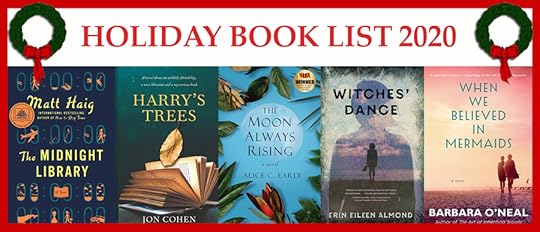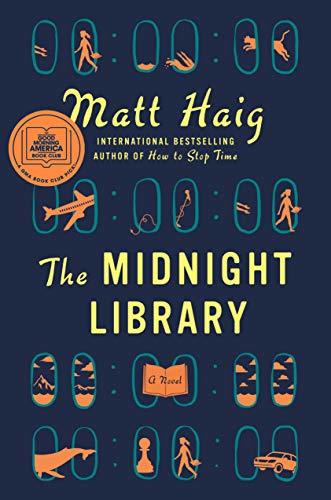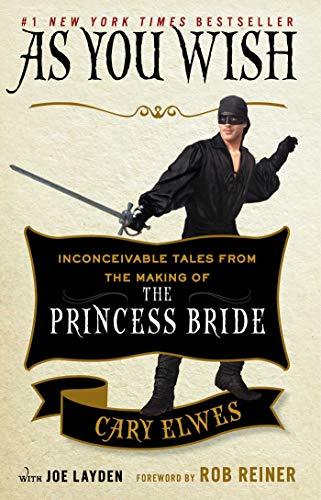Carol Newman Cronin's Blog, page 26
December 10, 2020
4 Important Life Lessons from Losing on a Lake
Two decades ago, Paul and I had to return a borrowed Snipe to Mystic Lake, a hill-encircled body of water just west of Boston. The local fleet was racing that day, so—shrugging our shoulders into “why not?”—we decided to join them; might as well break up four hours of driving with a few hours of sailing. Though it wasn’t the open water ocean we both loved, it was still sailboat racing. We’d undoubtedly learn a few things, catch up with a few friends, and then head home.
By the end of that challenging day, the only thing I’d learned for sure was that divorce is NOT a four letter word.

We are still happily married, of course. But the crazy windshifts on that most mystical of lakes—so unpredictable, so random—left us both feeling battered and bitter and—stupid. Surrounded by high hills, the breeze would fill in or disappear, seemingly at random. Our combined sailing expertise (earned over two lifetimes on open water) no longer applied.
That same frustration has returned in 2020: something we can’t see or predict is requiring us to learn new habits on the fly. It’s as if life’s summer seabreeze suddenly decayed into a land-confused, puffy, shifty “mystical” wind, and we have no idea how long it will be before we can again trust our senses to figure out what “wins.”
Lake Sailing’s Life Lessons
Here are a few important lessons that are helping me weather this ongoing life-storm.
“Keep your bow pointing toward the mark.” What really matters? For me it’s family, creativity, and time on the water. (This winter, that may be just paddling.)“Control what you can, and let go of what you can’t.” We can’t predict what the wind or the virus will do next, but we can take charge of our own reactions. “Make your own luck.” Focusing on the positive has helped me identify and pounce on new and totally unexpected opportunities. “Win the regatta, not the race.” Don’t get caught up in petty squabbles; try to be patient with each other, and take the long view.
Since that memorable day of unpredictable sailing, I’ve gone back to that crazy lake several times (including four days at the 2017 Snipe Nationals with supercrew Hillary Noble, shown in the photo above). I haven’t exactly mastered that type of racing, but lessons learned on that cussed lake are now helping me weather 2020’s daily barrage of unexpected windshifts. And until we can travel and socialize and sail normally again, I wish the same for you and yours.
Got a secret to getting through these strange times? Share it in the comments below, or send me an email. Meanwhile thanks for reading, and stay safe.
The post 4 Important Life Lessons from Losing on a Lake appeared first on Carol Newman Cronin.
December 3, 2020
Holiday Book List for 2020
What a year! Through all of our changing rules and quarantines and news frenzy, one thing remained constant: books provided escape. So here’s my annual holiday book list, along with its appeal to gift books (again) this year—to both yourself and your loved ones.
2020 bonus: if you make it to the end, you’ll find a special offer.
Best place to buy?
I’ve published four books (so far) with three different publishers, and I often get asked what buying option best supports the author. Since I prefer to put my time into writing rather than perusing the fine print of various contracts, my answer remains: buy from your local independent bookstore (or direct from the author) and then leave a review on Amazon. Sharing your thoughts will really help a book’s visibility—especially if you also copy and paste to Goodreads and Bookbub!
Another good way to support authors is to invite us to join your next book club meeting. I can easily spend an hour talking about character motivation, inspiration, and what’s next for Cooperation Island. For more info, send me an email.
Now without further ado, here’s my 2020 Holiday Book List.
(And don’t forget that holiday deal at the end.)

The Midnight Library
“Between life and death there is a library,” the librarian tells Nora when she comes to in a building filled with endless aisles of green-covered books. “Every book provides a chance to try another life you could have lived… would you have done anything different, if you had the chance to undo your regrets?”
Matt Haig’s latest novel explores all the roads not taken. It will be each reader’s choice whether to read it just for the story, or go a little deeper—and consider what really makes life worth living.
Harry’s Trees
I lost myself in this story of a guilt-stricken young widower named Harry who stumbles onto an unexpected windfall and blindly flees his soul-crushing job at the US Forest Service in Philadelphia. I can’t promise you will love it as much as I did, but if you’re looking for something completely different—and yet, somehow, quite familiar and personal—you’ll find it in the pages of Harry’s Trees.
Witches’ Dance
Erin Almond’s debut novel title comes from the name of the fifth violin concerto by Niccolò Paganini, a virtuoso and composer from the early 1800s who is considered one of the developers of modern violin technique. This story will resonate most deeply with musicians, but I recommend it to any passionate creative (as long as they can stomach the genre-busting of a literary fantasy). Just make sure to tell your local bookseller where the apostrophe should go in the title.
When We Believed in Mermaids
This page-turner by bestselling novelist Barbara O’Neal starts off with a gripping first sentence: “My sister has been dead for nearly fifteen years when I see her on the evening news.” The narrator, Kit, is an ER doc in Santa Cruz, up late after another stressful shift; this added shock sends her right to her favorite recovery spot, a nearby surfing beach. Instead of recounting what she drives by along the way, Kit instead takes us back in time to replay a few key memories about her family. So by the time we meet her mother for a post-surf breakfast, we understand the coolness of their relationship. We also understand (and sympathize with) her mother’s reaction when Kit asks, at the close of the first chapter, “What if she’s really alive?”
The mom replies: “I guess I’m going to have to kill her.”
The Moon Always Rising
Last but definitely not least, my friend and fellow author Alice C. Early’s debut novel has won several awards since I interviewed her last April. The story introduces headstrong Scot Els to Jack, the very realistic “jumbie” (ghost) who refuses to leave the house she buys on the Caribbean island of Nevis. MOON might be your best chance for an island escape this year…
HOLIDAY DEAL
It’s going to be a great winter for escapist reading, and my books always offer up a happy ending. If you’d like to gift yourself or a loved one a personalized copy of any (or all) of my books, I’m offering a special holiday deal as thanks for reading this blog: BOGO (buy one, get one free). Email me and we’ll sort out the details. Offer expires December 15, 2020.
Thanks for reading, and enjoy the holiday season!
More book recommendations
I haven’t missed a holiday book list in five years (though the titles have been a little inconsistent):
The post Holiday Book List for 2020 appeared first on Carol Newman Cronin.
November 26, 2020
Happy Thanksgiving from Cooperation Island
I spent way too much time the past few weeks wondering how Thanksgiving would be celebrated on Cooperation Island—a place that doesn’t actually exist. So today, partly to remind us all what “normal” would look like, I’m going to share a few fly-on-the-wall thoughts about how my imaginary friends might be spending this best holiday of the year.
First of all, there are still ZERO cases of COVID-19 on Brenton Island! Second, there will be no spoilers—so even if you haven’t yet read Ferry to Cooperation Island, please continue.

The island’s 37 residents would definitely all celebrate together. I’m picturing an afternoon potluck in the schoolroom; people who don’t like to be out after dark shouldn’t have any excuse to stay home. And it is a glorious sunny day, with a light westerly breeze and afternoon temperatures peaking out in the low 50s. Most people have just seen each other the day before or will likely see each other the day after, down at the Bean or up at Prime’s Grocery, so they dress up a little—to make it special.
The Prep
Lila McKay and her students spent Wednesday transforming their classroom into a festive dining area. First they pushed all their desks into a row against the back wall and covered them with mismatched tablecloths, forming a serving buffet. Next, they swept the entire room and set up six folding tables and 36 chairs. The two second graders even made centerpieces for each table (custom conflagrations of dried flowers, colorful leaves, and glitter, glued to brown construction paper).
Arrivals
On Thanksgiving afternoon, the Irreverend opens the door first and then stands near it to greet everyone else. He either hugs or shakes hands with every single arrival—tall, small, young, old—as soon as they come inside, before they even have a chance to offload the food they’ve brought to share. He encourages the quieter islanders to mingle with someone they don’t interact with every day, though he can usually predict who most folks will sit down with for the meal. He can also guess (by scent, and predictable repetition) what’s hidden inside all those casserole dishes.
Who brings what?
Well, that’s a fun thing to consider. I’m guessing that Parker Dane volunteers the Skye View Inn’s chef to cook four enormous turkeys again this year, even though the main oven’s thermostat is definitely on the fritz. Mémé will bring her usual specialty, candied yams. Barb the baker arrives with four trays of holiday hard rolls, which were a lot more work than her everyday loaves. And Sam from Prime’s Grocery shows up with a mismatched cartful of fancy bottles, dominated by ginger beer and wine spritzers (neither had proven as popular with the summer tourists as he’d expected).
Will the Writer carries in two large bags from a New York deli and laboriously arranges a beautiful (but mostly unrecognizable) tray of gourmet cheeses, patés, dried meats, and olives; the accompanying crackers quickly disappear. Anna Crosby proudly sets down three pies, which prompts the doctor’s wife to start speculating (too loudly) that the artist would try to pass them off as homemade again this year. Patty and her mother set up the Bean’s backup coffee urn, which bubbles and burbles away for the next several hours. (By the end of the meal, the brown odor of over-brewed coffee will start to overwhelm other scents like roast turkey, chalk dust, and the faint but unmistakeable whiffs of seldom-worn clothing: cedar and mothballs.)
Waiting
When the cartful of drinks shrinks to less than half full, people begin to wonder aloud when the turkey will finally show up. A few take their already chosen seats, fidgeting with the Inn flatware and folding the Halloween-themed napkins (another leftover from Prime’s Grocery) into origami. The doctor’s wife even helps herself to a plateful of food, after dropping several reminders about her low blood sugar.
Chef Gretchen and Parker finally appear carrying heaping platters of sliced turkey, and everyone lines up to load their plate. Unfortunately, the white meat proves to be tongue-stickingly dry thanks to that unpredictable oven. But Gretchen also delivers a large vat of her famous fisherman’s stew, which doubles as a handy, if untraditional, gravy.
Eating and Toasting
Chewing and swallowing quiets conversations only for a short while, and by the time the Irreverend stands to make his pre-dessert toast, he has to clink knife against beer glass to shut down all those alcohol-loosened tongues (and a wailing toddler). “Though you all don’t always agree with me,” the Irreverend begins, “I like to think we all feel very grateful right now. Grateful to have this special day when—no matter what we each believe, about who might’ve created this glorious world—we all pause to count our blessings. Grateful to gather together here with family and friends, sharing food and drink and stories. Grateful for our full bellies. And most of all, grateful to live in a place that rewards us for cooperation. We–”
“We agree with ya already!” Harbormaster Mack calls out, raising his empty glass to the Irreverend—and simultaneously belching, which prompts a chorus of laughter.
The Irreverend, gracious in defeat, raises his own glass. “Sláinte—good health—to all!”
“Cheers! Good health! Happy Thanksgiving!” Around the room, neighbors toast each other. And then chairs scrape against the wood floor, as teenagers go back to load a plate with seconds and the adults score a drink refill—or try one tiny piece of that weird-looking salami.
As for Captain James? Well, he’s not exactly a gourmet cook, so he hasn’t contributed any food. But he does convince a posse of teens and adults to stick around afterward and clean up.

After party
The rest of the islanders head on home, many exclaiming on the gorgeous (though early) sunset to the south and west. A few will grouse about those stinky New York patés or that weak coffee. One in particular might even speculate that the pumpkin pie was, actually, homemade—though DEFINITELY not the apple or the mince. But most will simply carry their full-bellied contentment silently back to their cottages, grateful no matter what they believe for whoever created this glorious world.
Thank you for letting me indulge my curiosity about this holiday on Cooperation Island, and Happy Thanksgiving! May you and yours spend the day counting your blessings; mine definitely include you, my readers (as well as all of those imaginary friends).
Want another helping?
One thing about a Thursday blog: once a year, it always lands on Thanksgiving. Here’s are 5 of my favorites from previous years. Enjoy and thanks for reading!
Over the River, with Gratitude
The post Happy Thanksgiving from Cooperation Island appeared first on Carol Newman Cronin.
November 19, 2020
Book Review: The Midnight Library

The first book I read by Matt Haig was The Dead Fathers’ Club (2007), which convinced me (and not just because the title was correctly apostrophized) to read everything else he would ever write. When How to Stop Time (2018) disappointed (despite being “award-winning”), I was very happy to see another Haig book appear so quickly; The Midnight Library came out this year and is currently on several bestseller lists. I just finished it, and came up with several reasons to appreciate his genius all over again. Here are my top four.
First
There’s the improbability and originality of the book’s premise. Nora Seed, a 35 year old, decides her crappy life is not living. But when she overdoses, instead of ending up dead (as expected) she finds herself in the midnight library; a strange halfway house between life and death. Inside, she finds “aisles and aisles of shelves, reaching up to the ceiling and branching off from the broad open corridor Nora was walking down. She turned down one of the aisles and stopped to gaze in bafflement at the seemingly endless amount of books.”
All the book covers were various shades of green, with no titles or authors on their spines, making it even harder than a regular library to choose between them. Fortunately, she finds a guide: Mrs. Elm, her childhood librarian, appears, explaining that Nora has been given the chance (before death comes for her) to experience all of the lives she regrets not living. Best of all, Mrs. Elm promises that if she finds a life she really, really likes, she’ll get to stay in it. And until then, time will be stuck at midnight.
Think about that for a minute: the chance to casually dip a toe into what could’ve been, without fear of “wasting” time! Who’s in?
Second
The second reason I so appreciate Haig’s genius is that he keeps this unlikely and fantastical story quite grounded. The Midnight Library reminds us of an actual library, and all of Nora’s other lives are totally believable—just different. He doesn’t focus on the pesky mechanics of time/life travel, because it would just get in the way of the lessons about choice and happenstance that we pick up along the way.
Third
Anyone who remembers the magic powers of a childhood librarian will understand that Mrs. Elm is the perfect guide for exploring a purgatory of regret, nineteen years later. We are first introduced to her in a quick prologue, when Nora finds it hard “not to compare Mrs. Elm to her mother, who treated Nora like a mistake in need of correction.” (So much character backstory, all in that one sentence.) Through the careful repetition of details (short grey hair, a turtle-green polo neck jumper) we recognize the librarian almost before Nora does, when she reappears in the Midnight Library to play tour guide.
Fourth
The language and word choices are magnificent, and each word does the work of several. Consider this world-building passage, when Mrs. Elm first introduces Nora to the library:
As she spoke, Mrs. Elm’s eyes came alive, twinkling like puddles in moonlight.
“Between life and death there is a library,” she said. “And within that library, the shelves go on for ever. Every book provides a chance to try another life you could have lived. To see how things would be different if you had made other choices… would you have done anything different, if you had the chance to undo your regrets?”
And so begins Nora’s chance to experience the lives she would’ve had, if she’d fulfilled one of her many early promises: Olympic swimmer. Glaciologist. Pop star. All of which eventually make her realize that her “root” life was where she belongs after all; she just needs to refocus her gaze on what she can do, not what she hasn’t done. As Mrs. Elm repeats throughout the story, “The only way to learn is to live.”
I’m more conscious of novel structure than I used to be, which may be why the series of losses that initially drives Nora to that suicide attempt seemed a bit heavy-handed. My other quibble is with the climax, which was narrated with more distance than the scene’s intensity warranted. Knowing Haig, this was a conscious choice; perhaps that’s part of Nora Seed learning to come out of her shell and live.
This book is strongly recommended for anyone who would jump at their own chance to explore a few roads not taken. It will be each reader’s choice whether to read it just for the story, or go a little deeper—and consider what really makes life worth living.
The post Book Review: The Midnight Library appeared first on Carol Newman Cronin.
November 12, 2020
Farewell to the Best Boat Park Buddy
Geoff Ewenson died suddenly and much too soon, and I feel completely unqualified to write about his life. After all, I was just one of his many, many casual boat park buddies. But weeks later, his loss is still clogging my brain, somehow much bigger than it should be given our passing acquaintance. So maybe writing out my own vague memories will help. And maybe the attempt to convey what he meant to me will help all you other boatpark buddies deal with your own loss, as well. Maybe.
 Photo: Harry Legum
Photo: Harry LegumI don’t remember exactly where or when I first met Geoff. J/24 sailing in Newport? J/22 sailing in Annapolis? Finns and Europe dinghies at a Miami Olympic Classes Regatta? It was definitely in a boat park, either getting ready to go sailboat racing or cleaning up afterward. And I am absolutely sure he made the afternoon seem brighter, just with a casual remark. He was always so comfortable in his own skin, and so happy to go sailing—didn’t matter where, or what kind of boat.
As we both fundraised and power-lifted our way through our Olympic hopeful years, I learned to depend on him as a reliable oasis of great attitude—no matter where in the world we found ourselves, how cold and wet the day was going to be, or how disappointing our results were against the world’s best. While most of us got way too wrapped up in all the pesky and distracting details of campaigning, Geoff always reminded me—and so many others—just how lucky we all were, just to go sailboat racing.
The only time I got to sail on the same boat was a personal embarrassment. Filling in for the regular bow person, I was tossed up onto the pointy end of an IMX-38 to flub my way around the buoys with a string of late spinnaker sets—and one particularly mortifying leeward mark rounding, when the only thing flying forward of the mast was the still-erect spinnaker pole. At the end of our first day, Geoff was the only one in the afterguard who came forward to help clean up; he didn’t try to pretend all those blunders hadn’t happened, but he did seem to understand I was doing my best. Which made it much easier to take in his quiet suggestions about how to do better on day two.
After we both retired from Olympic sailing, my random glimpses of Geoff shifted to venues outside the world’s boat parks: I’d spot him at the business end of a Labrador leash, or picking up a to-go order at a favorite restaurant. I always felt better about the world after even a quick chat with him, especially if it also included his wife Mary and maybe a quick dog head pat.
But our last conversation, only a few weeks before his death, was back in a boat park again. I was rigging up my Snipe for a weekend regatta at Severn Sailing Association in Annapolis. He stopped by to pick up a Star boat before driving to Oxford: “Where I’m going to try really, really hard to beat THIS guy,” he said, pointing to another Star sailor who was also hooking up a trailer. It was just another Friday afternoon in the all-too-short life of Geoff Ewenson; on his way to a regatta, turning a chore into an occasion to spread joy.
As we waved goodbye and wished each other luck that sunny October afternoon, I was absolutely sure that he would try his very best to beat that other sailor. But I also knew that once the race was over, he’d do his very best to help everyone else improve and share a laugh about any mistakes. If there’s an entry in the dictionary for “cooperative competitiveness,” it should be updated with a picture of Geoff. Or better yet, his logo, which has been made into stickers by some of his less casual acquaintances.

A few weeks later, I heard the news and realized: there wouldn’t ever be another casual boat park interaction somewhere around the sailing world. Geoff has sailed off to that great regatta in the sky, leaving the rest of us to work at filling such a brain-clogging loss with understanding and acceptance. So, now that I’ve cleared my head a little by sharing these few random memories, I’m going to go paste reminders of his spirit and attitude onto both the back of my tow vehicle and the front of my trailer box. In 2021 and beyond, Geoff will be with me in every boat park, at least in spirit. And I’ll try to remember all on my own just how goddamn lucky we all are, just to go sailboat racing.
The post Farewell to the Best Boat Park Buddy appeared first on Carol Newman Cronin.
November 5, 2020
How to Stretch a Pantser Writer’s Brain
Toward the end of summer, just when all the back-to-school sales made me want to go out and buy unchewed pencils, a fresh spiral-bound notebook, and a new lunchbox, I stumbled onto a writing course at Grub Street called Advanced Novel Planning that sounded custom-designed just for me:
“You’ve already finished a novel. But somehow that doesn’t make it any easier to start the next one. You might have the seed of an idea, but no clear sense of where to take it, what its potential is, and how to build a story from that starting point. If you’re looking to avoid the detours, dead ends, and story stalls that made your previous novel-writing experience frustrating, this class is for you.”
A workshop that addressed my biggest writing weakness? Taught by Henriette Lazaridis, an author I both liked and respected? Limited to 10 writers who’d already completed at least one novel and, like me, were hungry to learn how to write the next one more efficiently? Yes please!

No driving required
I’d been tempted by several Grubstreet workshops before, but driving 2 hours to Boston and back for a 3 hour class didn’t pass the sniff test. This year, of course, I wouldn’t have to commute any farther than my own desk. So I registered, submitted the first chapter of Ferry to Cooperation Island, and then waited to hear whether I’d be accepted. (Spoiler alert: I was.)
Learning is fun
I hadn’t ever taken a multi-week course outside of college, so I didn’t quite know what to expect when I logged in for the first day of class. Even the opening session reminded me just how much FUN learning in a group setting can be. Henriette’s followup comments are like alchemy; they somehow transform vague details about one writer’s story into lessons we can each apply to our own work. And getting to know the other writers over multiple Mondays pings a part of my brain that would have kept napping through my usual solo writing. Even thinking (as I often do) I could never write a story like that reinforces both the certainty of my own voice and the truth that everyone, starting from exactly the same writing prompt, will come up with something entirely different.
Crafting a better story
We’re now more than halfway through the course work, and while some days I feel like I’m trying to write with my left hand, it is exciting to be stretching my writing muscles in an entirely different way. Embracing new ideas and approaches grows harder with age, as the comforting knowledge of “what’s always worked before” becomes ever more ingrained. But no matter how long this next book takes to complete, I’m sure it will be a better story because of this class. Which is much more inspiring to my pantser brain than a whole box of fresh pencils—or even that Snoopy lunch box.
The post How to Stretch a Pantser Writer’s Brain appeared first on Carol Newman Cronin.
October 29, 2020
Rod Johnstone: An Amazing Legacy of Yacht Designs
Last June, I sat down in the cockpit of a J/99 across from Rod Johnstone and interviewed him for a profile in Seahorse Magazine. It was a gray but warm day in Stonington Harbor, and he was getting ready to sail to Bermuda and back. At age 83.

Rod is a self-taught yacht designer, and he jokes that he never actually graduated from Westlawn (though they eventually gave him an honorary degree). What I like best about his story is that he followed his passion and then found a way to build a business out of it—an especially timely approach, now that the current economy is forcing so many of us to reinvent ourselves.
I really enjoyed learning more about Rod, and the September 2020 issue of Seahorse also includes a great story about Uffa Fox. In the October 2020 issue, you’ll learn from Dawn Riley herself how to properly pronounce “Melges”, so subscribe. Meanwhile, please share your Rod J stories in the comments below or by email. Thanks for reading!
Previous Seahorse profiles: Harry Anderson, Vince Brun, Dave Perry, and Jud Smith
The post Rod Johnstone: An Amazing Legacy of Yacht Designs appeared first on Carol Newman Cronin.
October 28, 2020
Ebooks On Sale Now for 99 cents!
The publisher is running a WORLDWIDE weeklong sale on Ferry to Cooperation Island ebooks from (approximately) Friday, October 30 to Wednesday, November 4. Get your copy for 99 cents or the equivalent. It’s the perfect holiday gift for e-readers who crave the clean smell of salt air, so buy now!

PS If you have trouble with any of these links, please email me.
The post Ebooks On Sale Now for 99 cents! appeared first on Carol Newman Cronin.
October 22, 2020
5 Best Quotes: Learning from The Princess Bride
What more is there to say about The Princess Bride? Quotes from this 30 year old cult classic are common currency among writing AND sailing friends of all ages, because it’s a movie people of all passions and generations can enjoy.
I’d been meaning to write a blog post about writing lessons from The Princess Bride ever since my Escape to WUnderland last November. Then everyone started buzzing about the cast reunion and read-through, and I realized I still hadn’t collected my thoughts into a post. So here are 5 quotes from The Princess Bride that teach us something about writing (and life).

“You rush a miracle man, you get rotten miracles.” Miracle Max reminds us that anything worth doing takes more time than we think it should.
The right word makes a difference. Inigo Montoya might not be a genius (except with his sword), but he knows that Vizzini’s repeated use of the word “inconceivable!” is not quite right. So he finally responds: “You keep using that word. I do not think it means what you think it means.”
Repeated lines can serve as story markers. The best example is the most frequently quoted sequence of the movie: “Hello. My name is Inigo Montoya. Prepare to die.” If he hadn’t explained the context early on, his increasingly determined repetition at the end (when Inigo battles the six-fingered man) would not have had nearly the same impact.
“Have fun storming the castle!” Enjoy every fresh challenge you set for yourself, even if it seems like a very bad idea to everyone else.
My personal favorite: “Are they using the same wind we are?” can be interpreted in many different ways. While I usually take it literally (how many times has a competitor caught up from behind, racing downwind?), it can also serve as an important reminder: we shouldn’t compare ourselves (and our work) to anyone else.
Invisible Structure: What The Princess Bride Teaches Us about the UnConference
Got another favorite line, and maybe even a lesson? Share it in the comments below. Meanwhile, I’ll leave you with our hero Westley’s ahead-of-his-time response to why he wears a mask: “I think everybody will in the near future. They’re terribly comfortable.”
PS: Westley wrote a book! Who knew??

The post 5 Best Quotes: Learning from The Princess Bride appeared first on Carol Newman Cronin.
October 15, 2020
Paul’s New French Girl
Though it may seem odd, my husband Paul and I keep separate boats in the same harbor. I joke with neighbors that it’s the secret to a good marriage, but it works for us—because the type of sailing we prefer is different.
My boat is Matsya, perfect for an after-work evening cruise, and she’s been in the family since 2007. (I also own a Snipe, but it lives on a trailer.) I’ve honestly lost count of how many boats Paul’s owned since then, but they are all perfectly suited to his preferred sailing specialty, shorthanded racing and trekking.
 Sailing past Schoodic, Maine, August 2020. Photo courtesy Liz Baylis
Sailing past Schoodic, Maine, August 2020. Photo courtesy Liz BaylisThis year, he’s introduced a new French girl to the family. She might look familiar, because she’s the same design as his last boat: an Archambault 31. The name will also be familiar: Kincora. Paul spent more than two years perfecting the last one before sending her off to a new home, and going back to the stock deck layout (designed for a crew of eight) reminded us both what a great job he’d done making the previous boat easier to sail. This winter he’ll redo the deck layout on the new boat, likely figuring out a few new modifications and improvements that will make this one even better.
Next summer, his priority will be single- and doublehanded racing—but here’s hoping he also makes time to take his wife and all her hefty gear (food, clothing, bedding, inflatable SUP) on a cruising escape or three. Even if one design regattas are back on the schedule again in 2021, I’ll make sure to pencil in time with Paul and his new French girl.

If you’re interested in shorthanded sailing and trekking (and setting up a boat to make it easier to sail), follow Paul’s vlog. Meanwhile, I’ll keep you posted about books and boats around Narragansett Bay—at least until we can get back to traveling and Snipe sailing again.
For more about the previous A31, read:
Hours vs. Experience: Sailing to Woods Hole
The post Paul’s New French Girl appeared first on Carol Newman Cronin.



